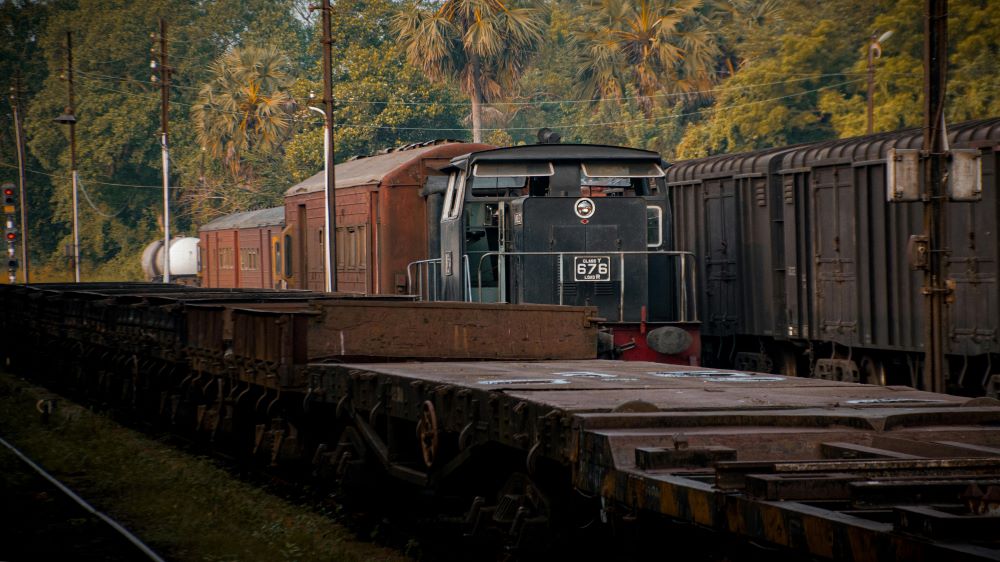The verdict against BNSF brings long-awaited justice and financial security to families impacted by this toxic mineral.
A Montana jury has delivered a landmark verdict, holding BNSF Railway accountable for its role in the asbestos tragedy that befell the small town of Libby. The decision, awarding $4 million each to the families of two victims, marks the first win in a series of lawsuits against the railroad company and offers a glimmer of hope for a community ravaged by disease.
Libby was once a bustling mining town, nestled near the U.S.-Canada border. However, its prosperity came at a terrible cost. The W.R. Grace vermiculite mine, which operated for decades until 1990, spewed asbestos fibers into the air, contaminating the town and its residents. Unfortunately, vermiculite, a mineral used for insulation and other commercial purposes, contains naturally occurring asbestos, a known carcinogen.
The lawsuit against BNSF alleged that the railroad, owned by billionaire investor Warren Buffett’s Berkshire Hathaway, played a crucial role in exposing Libby residents to asbestos. Trains hauled the contaminated vermiculite from the mine, with spills and dust from the rail yard becoming a significant source of exposure for the townspeople. The plaintiffs argued that BNSF, despite knowing or having reason to know about the dangers of asbestos, failed to take necessary precautions to protect the public.

During the trial, a central point of contention was BNSF’s awareness of the health risks associated with asbestos. While the railroad maintained its employees lacked knowledge of the dangers at the time, the plaintiffs countered that concerns about asbestos exposure had been documented in medical journals since the late 1800s. Furthermore, they argued that BNSF, as a large corporation, was responsible for being aware of potential hazards associated with the materials it transported.
The jury ultimately sided with the plaintiffs, finding BNSF negligent in its actions at the Libby rail yard. This negligence, they determined, was a substantial factor in the deaths of Joyce Walder and Thomas Wells, who succumbed to asbestos-related illnesses in 2020. The verdict awarded $4 million each to their estates, a measure of financial compensation for the immense loss suffered by their families.
However, the jury did not award punitive damages, suggesting they did not find BNSF acted with malice or indifference. BNSF maintains its employees were unaware of the health risks at the time, a claim that will likely be debated in future lawsuits.
The Libby verdict is a significant development for the town and its residents. For decades, they have grappled with the devastating health consequences of asbestos exposure. Many have developed mesothelioma, a rare and aggressive cancer, while others suffer from respiratory ailments and other asbestos-related complications. The long latency period of asbestos diseases means the full impact of the contamination will likely continue to unfold for years to come.
The verdict also has broader implications. It paves the way for future lawsuits against BNSF, potentially bringing justice and financial security to other affected families. Furthermore, it raises critical questions about corporate responsibility and the importance of taking precautionary measures when dealing with potentially hazardous materials.
The fight for justice in Libby is far from over. W.R. Grace, the company that operated the mine, remains a central figure in the town’s tragedy. While the company faced criminal charges and settled lawsuits with some victims, the BNSF verdict underscores the multifaceted nature of the contamination and the need to hold all responsible parties accountable.
The Environmental Protection Agency (EPA) declared Libby a public health emergency in 2009 and undertook a massive cleanup effort. However, the physical and emotional scars left by the contamination will take much longer to heal. The BNSF verdict, while a victory for the families involved, serves as a stark reminder of the human cost of environmental negligence. It highlights the importance of corporate responsibility and the ongoing struggle for justice communities like Libby face.
Sources:
Berkshire Hathaway’s BNSF Railway contributed to asbestos deaths in Montana town, jury rules
Jury: BNSF Railway contributed to 2 deaths in Montana town where asbestos sickened thousands


Join the conversation!